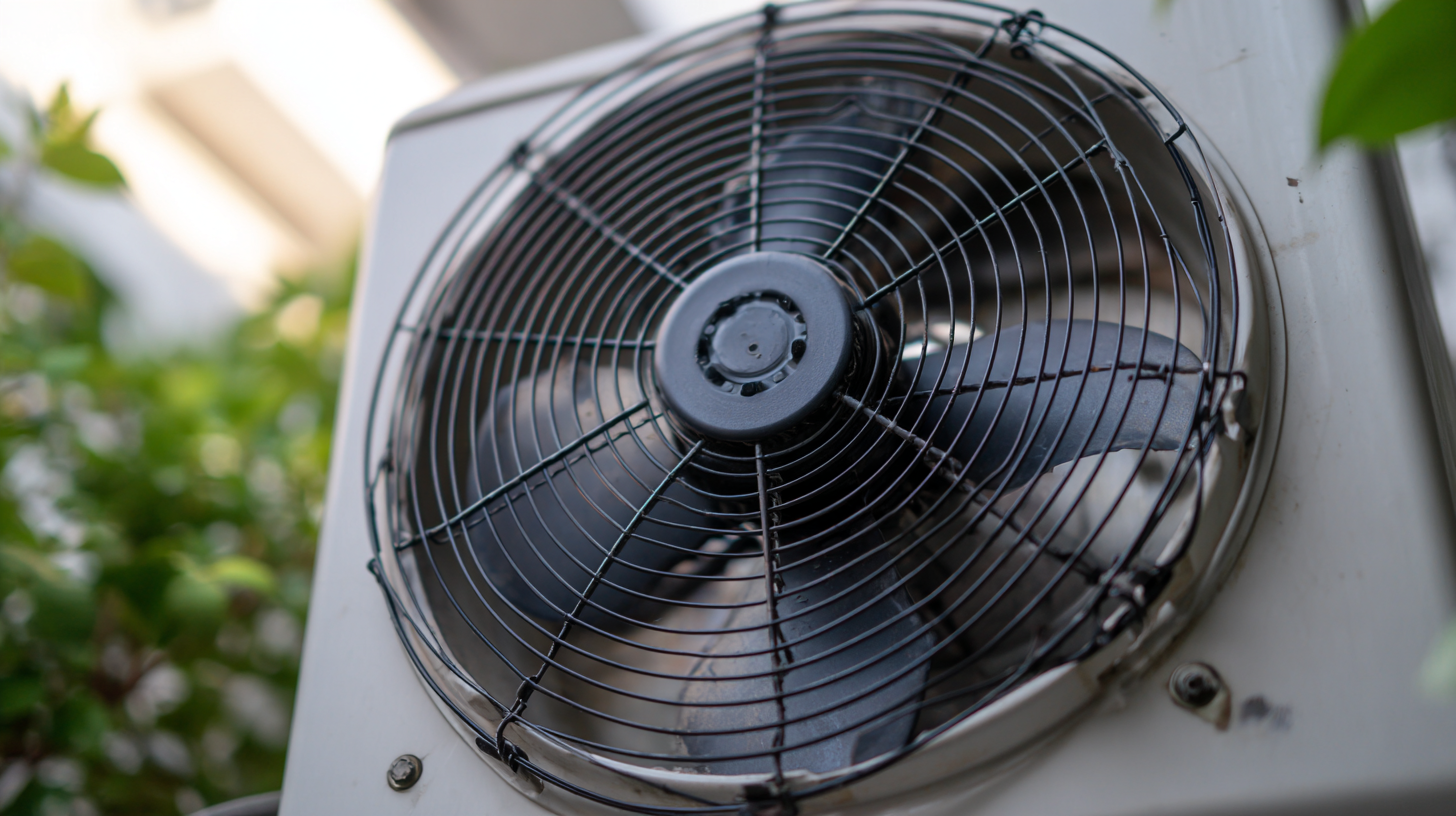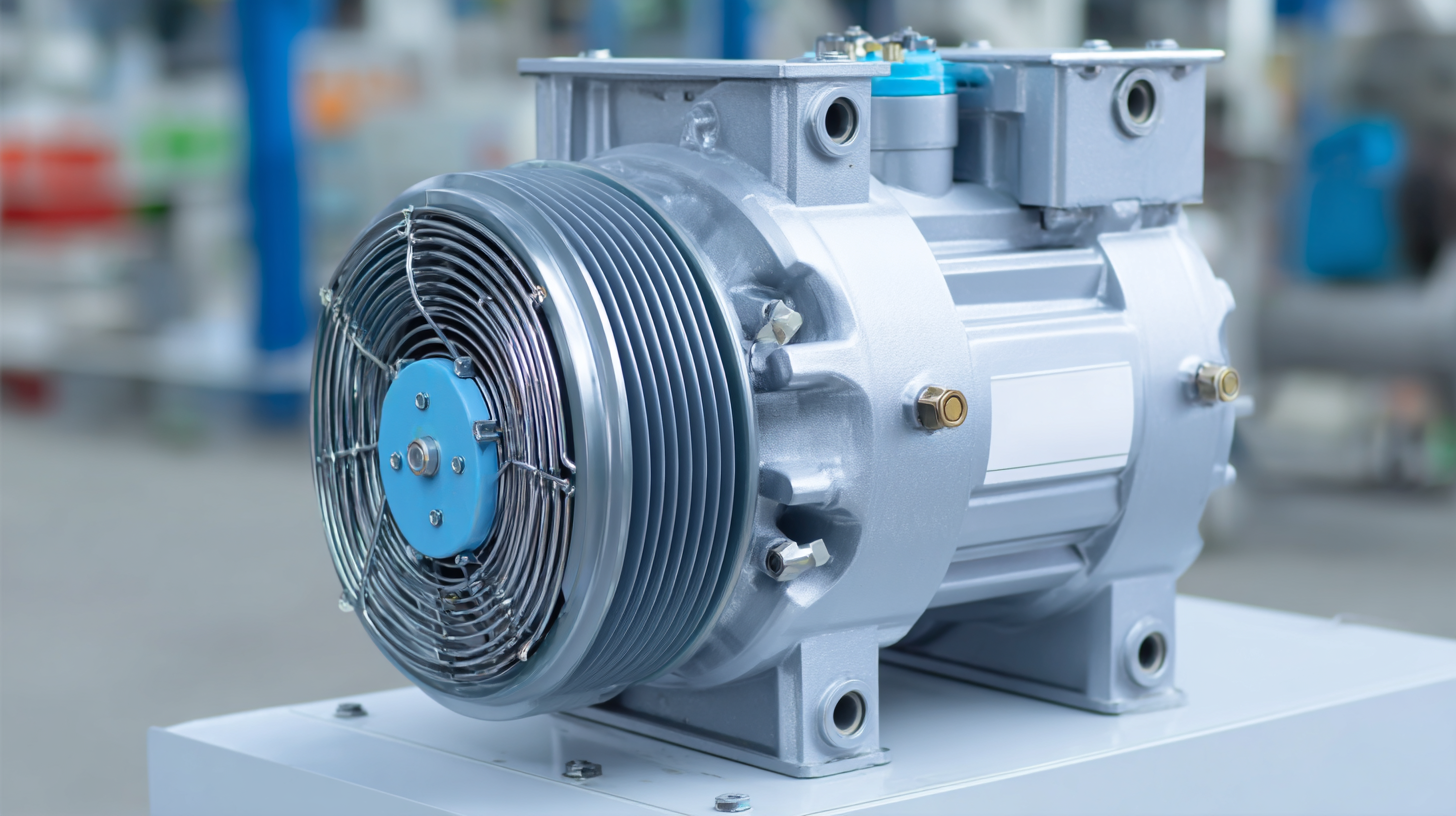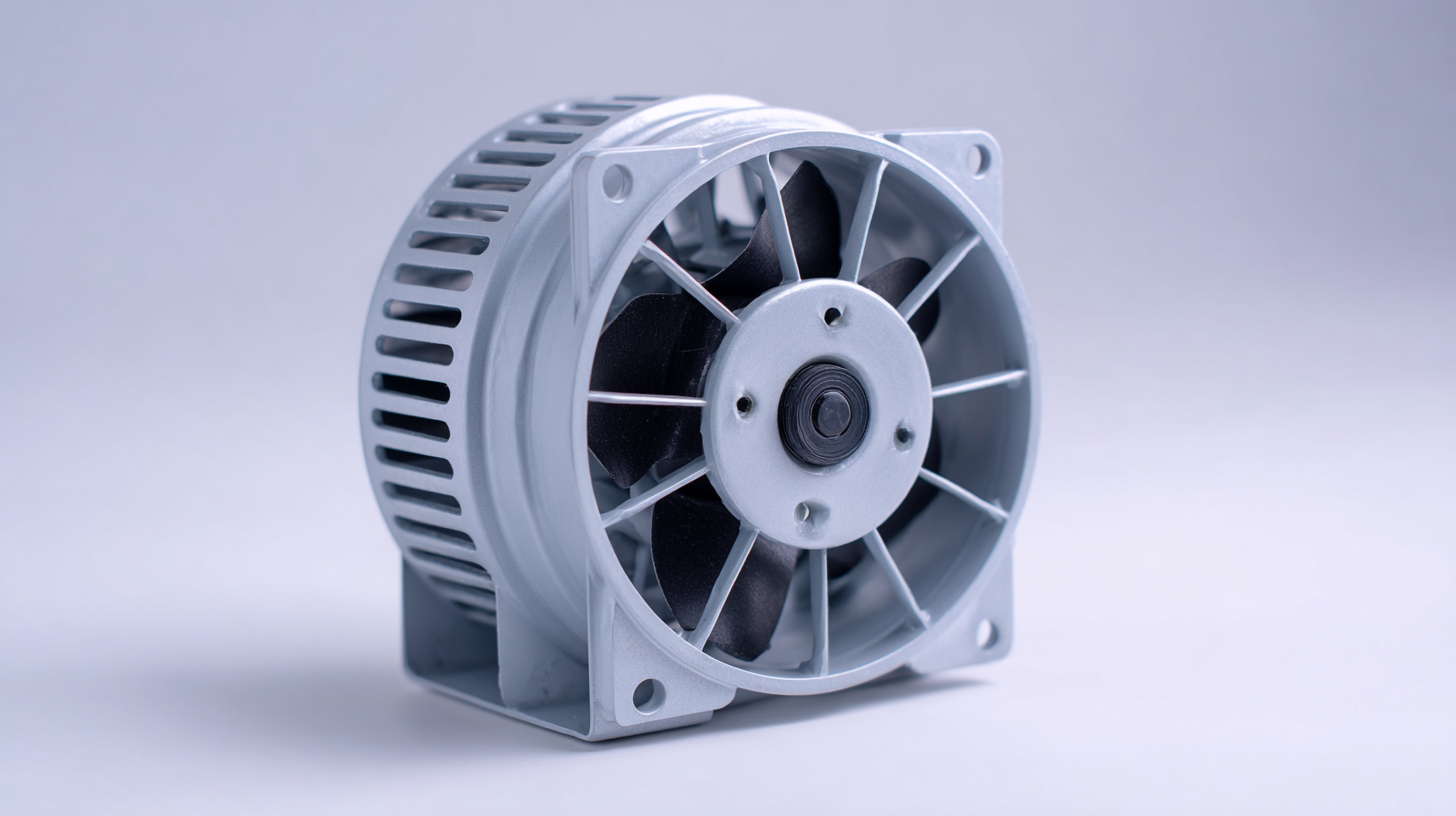




When it comes to ensuring the efficiency and longevity of your air conditioning system, selecting the right Air Conditioner Fan Motor is critical. According to a report by Grand View Research, the global air conditioner market is projected to reach $155 billion by 2025, with a significant portion of that growth attributed to the increasing demand for energy-efficient cooling solutions. The fan motor plays a pivotal role in the overall performance of an air conditioning unit, impacting not just energy consumption but also air circulation and temperature regulation. With technological advancements leading to a variety of options, understanding how to choose the best Air Conditioner Fan Motor has become essential. This guide will delve into unique solutions and key factors to consider, ensuring you make an informed decision that aligns with industry standards and personal needs.

When it comes to selecting a high-quality air conditioner fan motor, identifying reliable manufacturers is key to ensuring durability and performance. Start by researching manufacturers with a strong reputation in the HVAC industry. Look for those with a long-standing history, as established companies often have a track record of producing reliable products. Online reviews and customer testimonials can provide valuable insights into their quality and service.
Another important tip is to check for certifications and standards compliance. Manufacturers that adhere to industry standards demonstrate a commitment to quality and safety. Certifications from organizations like ISO or UL can indicate that their products meet stringent testing for performance and reliability. Additionally, consider manufacturers that offer comprehensive warranties and customer support, as these factors reflect their confidence in the durability of their motors. By focusing on these criteria, you can make a well-informed decision when choosing an air conditioner fan motor that meets your needs.
When selecting an air conditioner fan motor, it’s essential to focus on key features that ensure optimal performance and longevity. One of the top features to consider is the motor efficiency rating. An energy-efficient motor not only reduces electricity costs but also minimizes wear and tear, extending the lifespan of both the motor and the entire air conditioning unit. Look for motors with high-efficiency ratings that comply with industry standards.
Another crucial feature is the noise level of the motor. A quiet operation enhances the comfort of your home environment. Choose a fan motor designed with sound-dampening technology or one that operates at lower decibel levels to ensure a peaceful atmosphere. Additionally, consider the motor's materials and construction; durable components such as high-quality bearings and corrosion-resistant casings can significantly impact reliability and performance. Keeping these features in mind will help you select the best air conditioner fan motor for your needs.
When choosing the best fan motor for an air conditioner, one must consider the evolving technology between digital and traditional options. Digital motors are increasingly favored due to their efficiency and precision. They can adjust their speed based on the cooling demand, resulting in significant energy savings. This is essential not only for reducing utility bills but also for minimizing environmental impact, as energy-efficient solutions help to conserve resources.

On the other hand, traditional motors, while generally reliable and straightforward in design, often operate at a constant speed, which can lead to energy wastage, particularly in variable temperature conditions. This makes them less suitable for modern applications where adaptability is key. As air conditioning technology advances, integrating digital motors into new systems promises to enhance performance, improve user comfort, and contribute to more sustainable energy consumption practices. Ultimately, selecting the right type of motor plays a crucial role in optimizing the overall efficiency of an air conditioning unit.
When selecting an air conditioner fan motor, understanding energy efficiency ratings is paramount. Energy efficiency ratings, such as the Energy Efficiency Ratio (EER) and Seasonal Energy Efficiency Ratio (SEER), provide insight into how well a motor converts electrical energy into cooling power. According to the U.S. Department of Energy, appliances with higher rating scores can save users up to 30% on energy bills compared to less efficient alternatives. This not only results in significant cost savings over the lifespan of the unit but also reduces the overall environmental footprint.
In addition to EER and SEER, the Environmental Protection Agency (EPA) has introduced the ENERGY STAR label, which identifies products meeting strict energy efficiency guidelines. For instance, a motor that earns the ENERGY STAR label is required to perform at a minimum efficiency level 15% above the base rating. This certification indicates a commitment to energy savings. As the demand for energy-efficient systems grows, selecting a fan motor with a solid energy efficiency rating becomes vital not just for cost performance but also for adhering to increasing regulatory standards in energy conservation.
When it comes to keeping your air conditioner fan motor in optimal condition, adhering to best practices in maintenance is crucial. Regular inspections can help identify potential issues before they escalate. For instance, checking for dust accumulation and ensuring that the motor is properly lubricated can significantly enhance its efficiency and lifespan. Emphasizing preventive measures not only saves costs in repairs but also ensures a comfortable indoor environment throughout the seasons.
Moreover, leveraging modern technologies such as data analytics can provide deeper insights into the operational patterns of air conditioner fan motors. Much like the advancements seen in smart manufacturing, where big data and artificial intelligence are used to optimize production processes, similar approaches can be applied to HVAC systems. By monitoring performance metrics in real-time, homeowners and technicians can make informed decisions regarding maintenance schedules, ensuring that the fan motors operate at peak efficiency and longevity.



